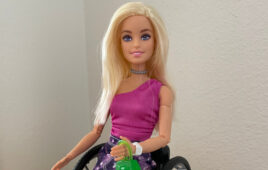Clients arriving for physical therapy (PT) may be on their best behavior out of respect for their clinical surroundings.

But a new study published in the Archives of Physiotherapy suggests that in physical therapy environments, more relaxed, straightforward speech — namely, swearing — can be beneficial in a number of ways, including pain reduction.
The research, led by Nicholas B. Washmuth (Department of Physical Therapy, Samford University, Birmingham, Ala.) and Richard Stephens (School of Psychology, Keele University, Staffordshire, U.K.), proposed that language can impact how a physical therapy client “thinks, feels, and performs… If used correctly, within a biopsychosocial approach to care, swearing has the potential to significantly improve patient outcomes.”
The researchers noted that swearing can help people to bond and can “enhance the therapeutic alliance between a patient and a physical therapist. Improvements in social pain, physical pain tolerance, and physical pain threshold can occur by strategic swearing by our patients.
“Even physical performance measures, such as power and force, could be enhanced if patients swear.”
Washmuth and Stephens suggested that swearing within the physical therapy environment “should be used to accomplish specific goals, such as relief from pain or stress.”
And the researchers noted that swearing aloud “can also increase physical performance,” as shown in other studies.
The researchers weren’t able to find “the mechanism by which swearing works,” noting that they “did not find measurable cardiovascular or autonomic arousal effects, with no clear changes in heart rate, skin conductance, or blood pressure when swearing. Therefore, increased muscular performance during swearing may be achieved by mechanisms other than sympathetic activation.”
The study, titled, “Frankly, We Do Give a Damn: Improving Patient Outcomes with Swearing,” was published March 17, 2022.
Archives of Physiotherapy is the journal of the Italian Society of Physiotherapy.

